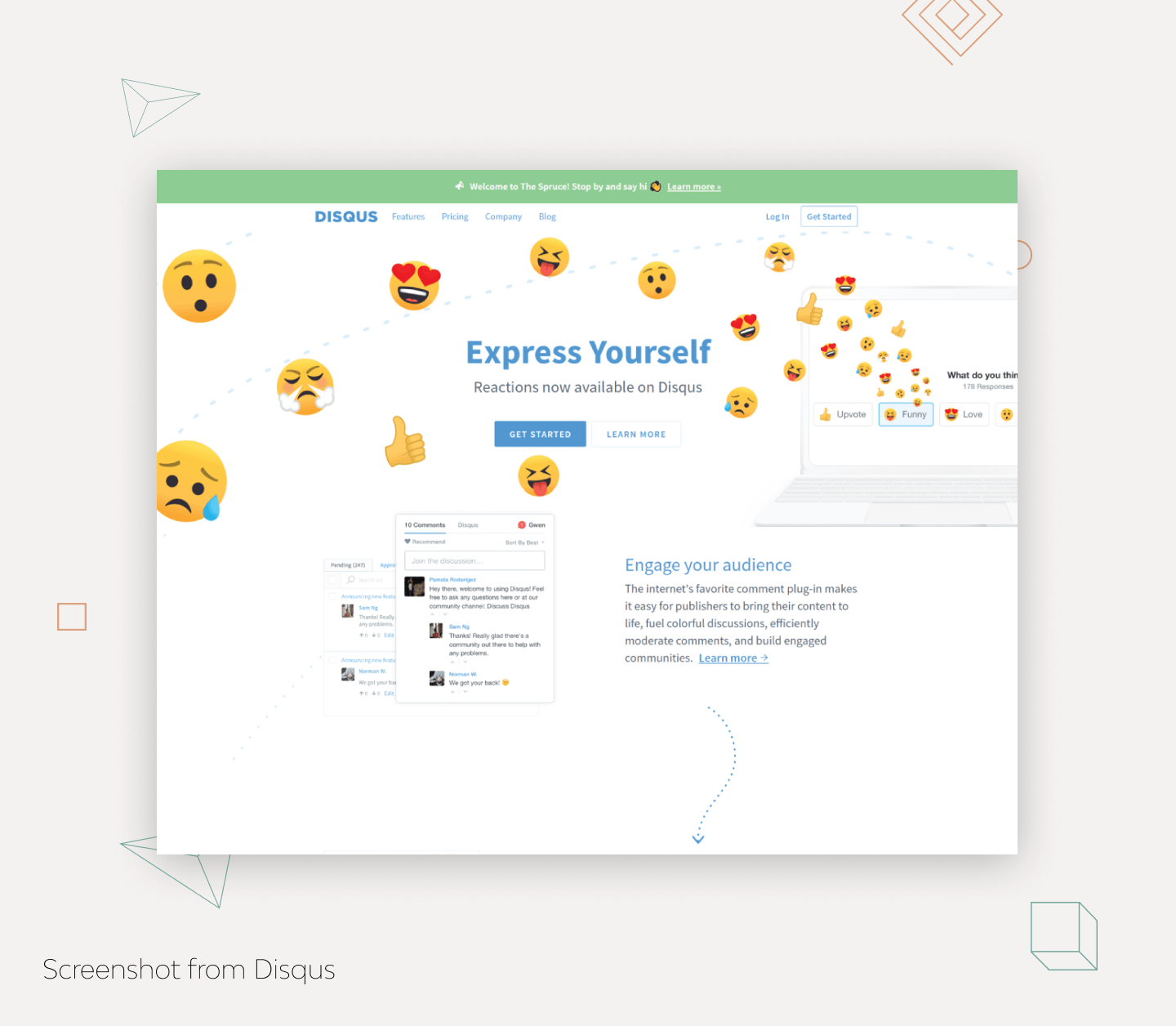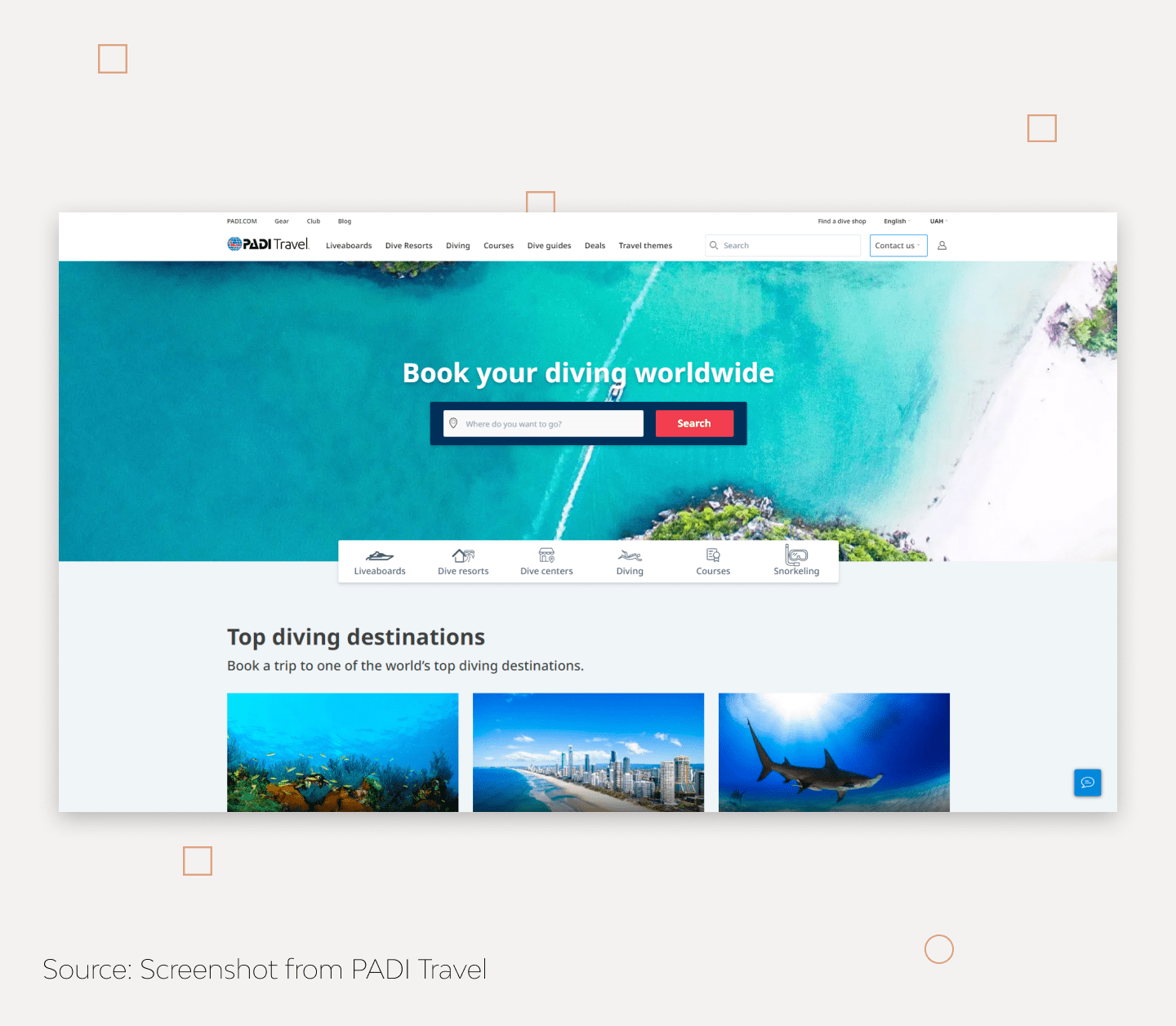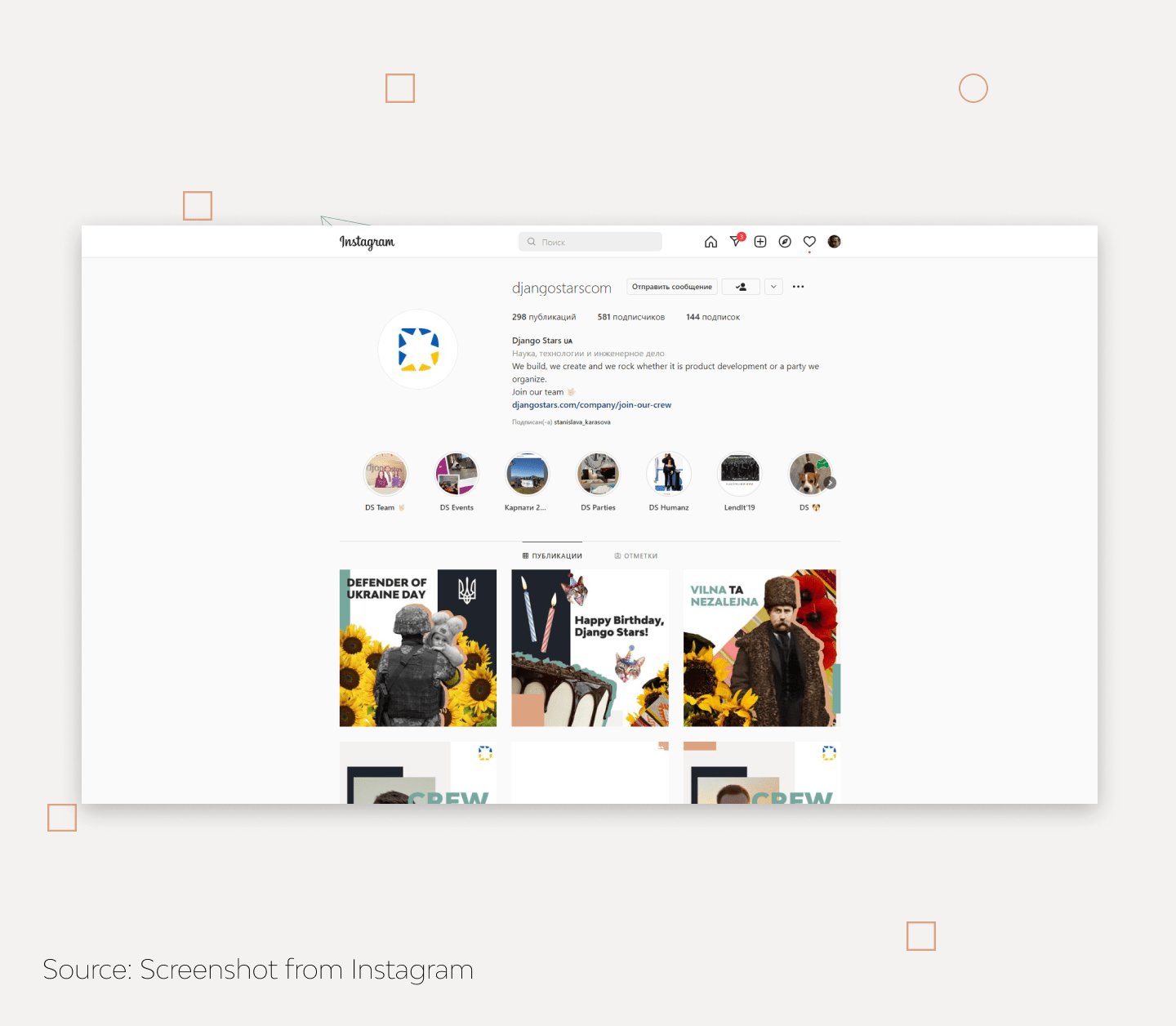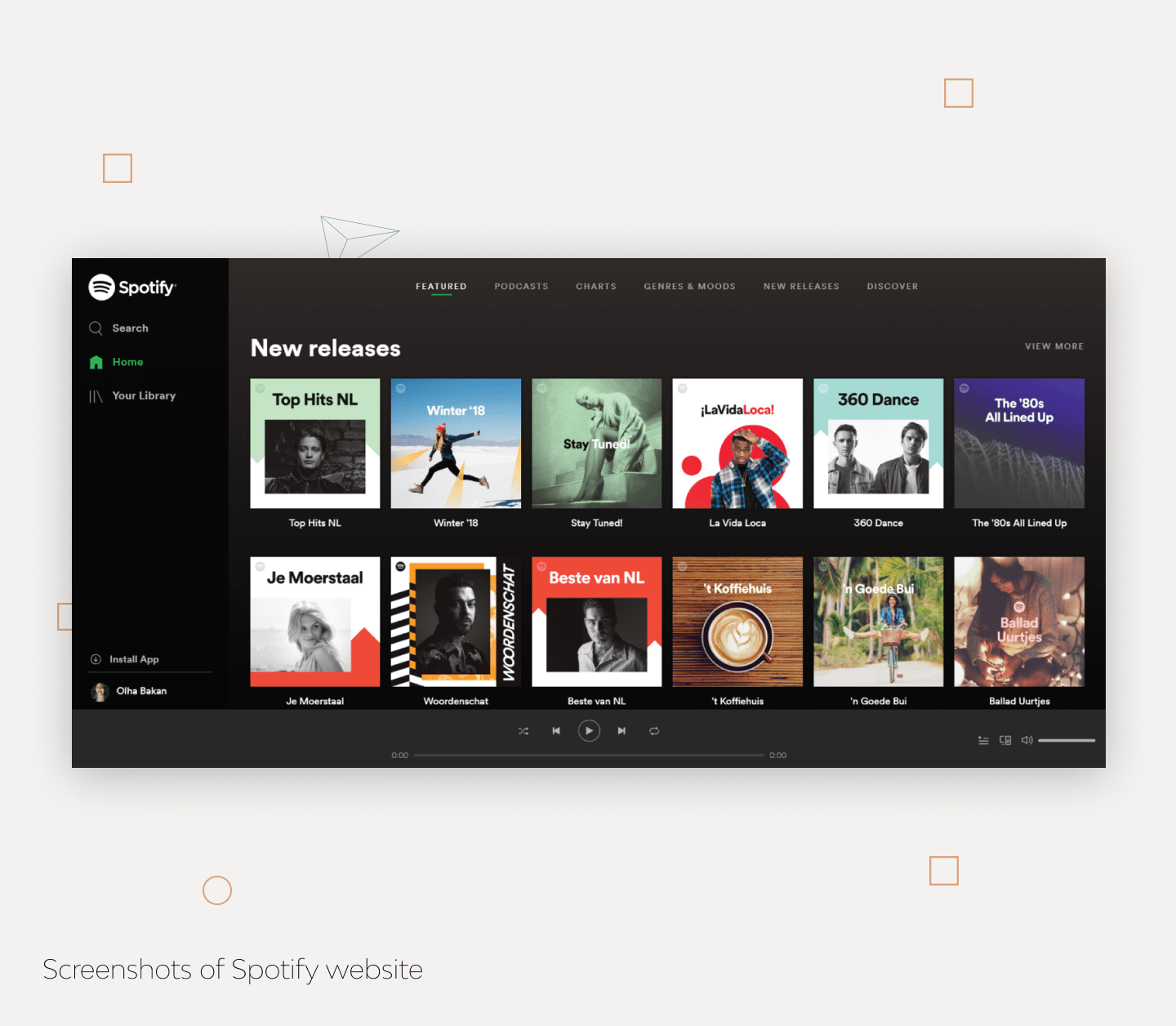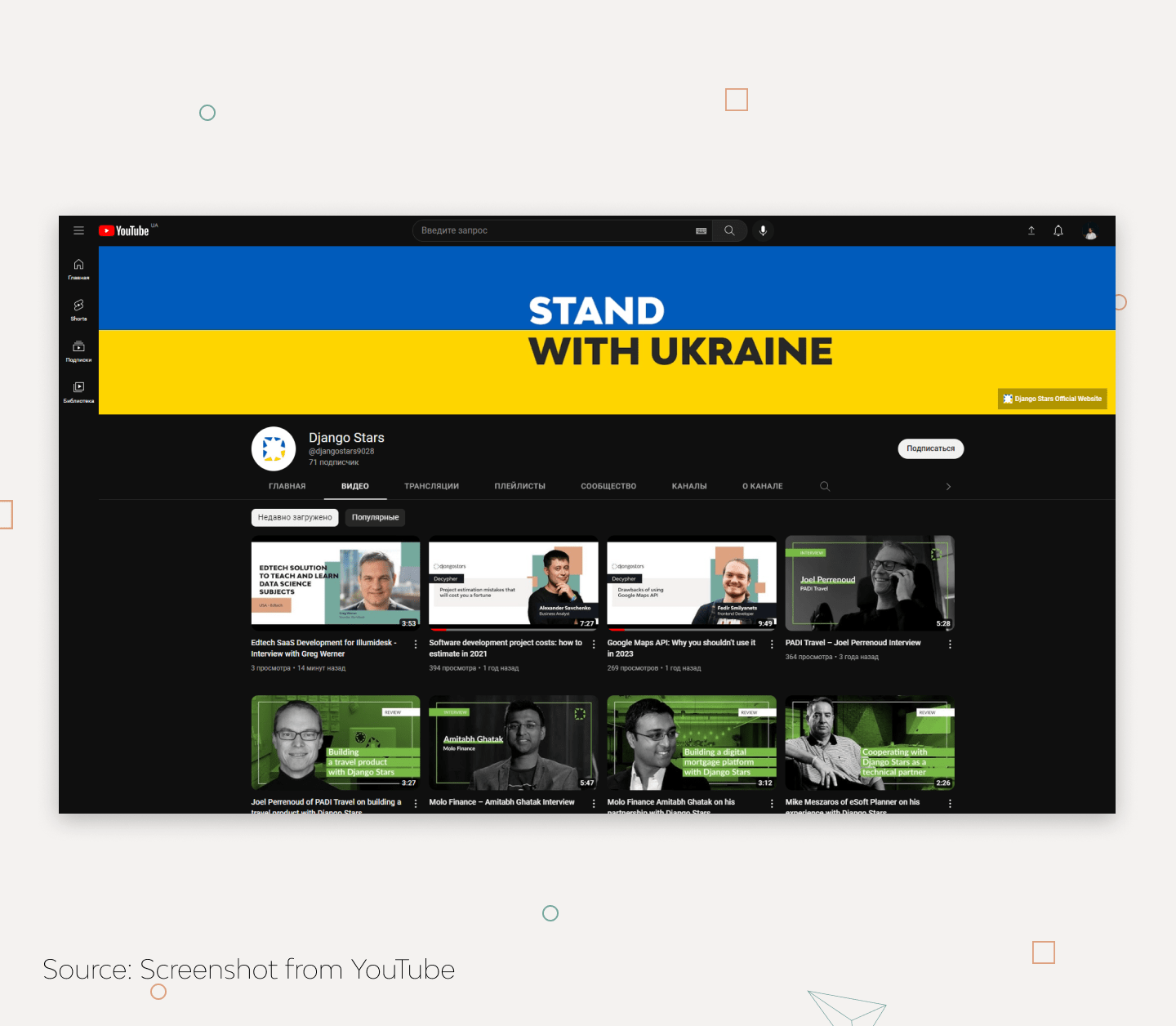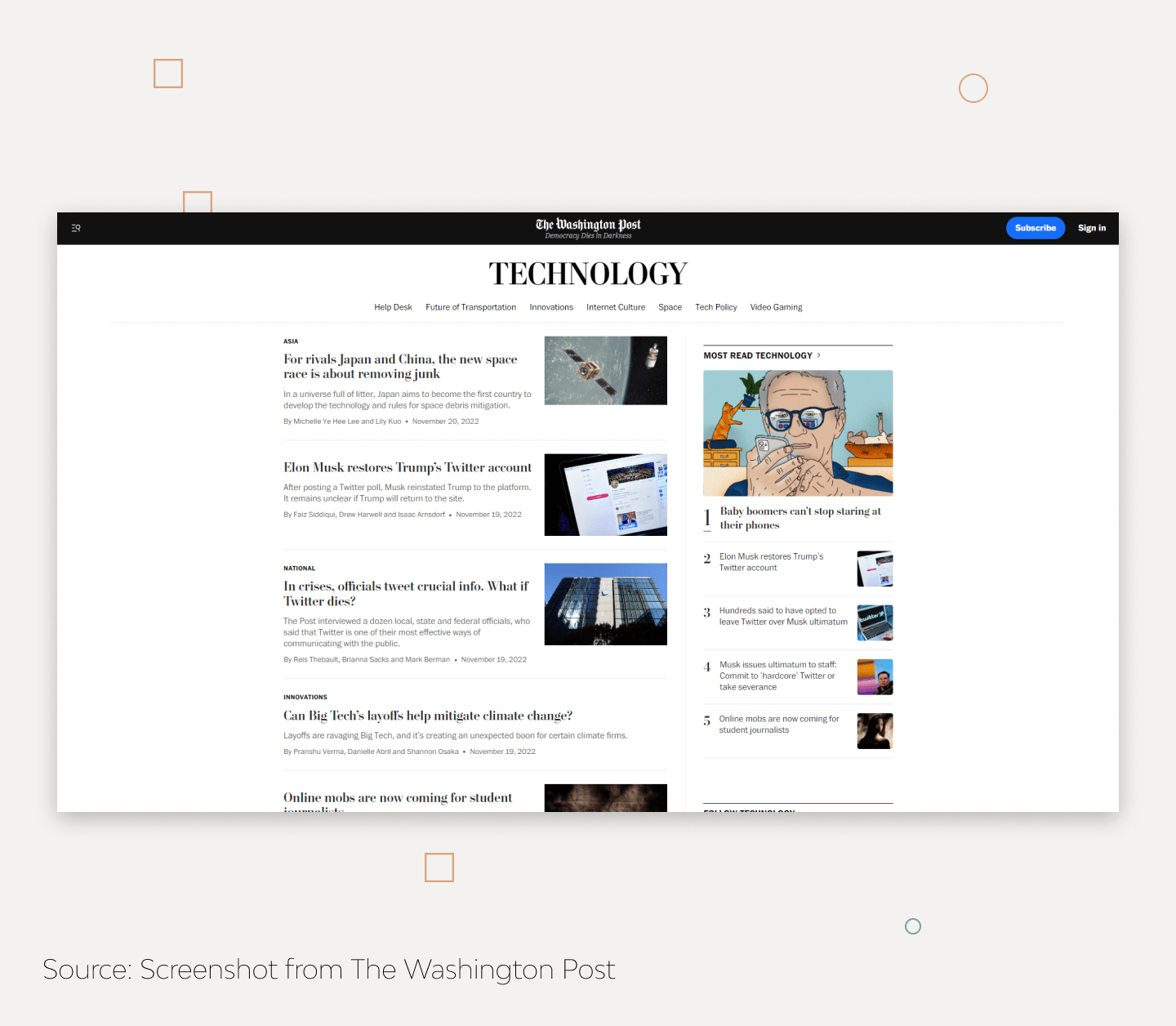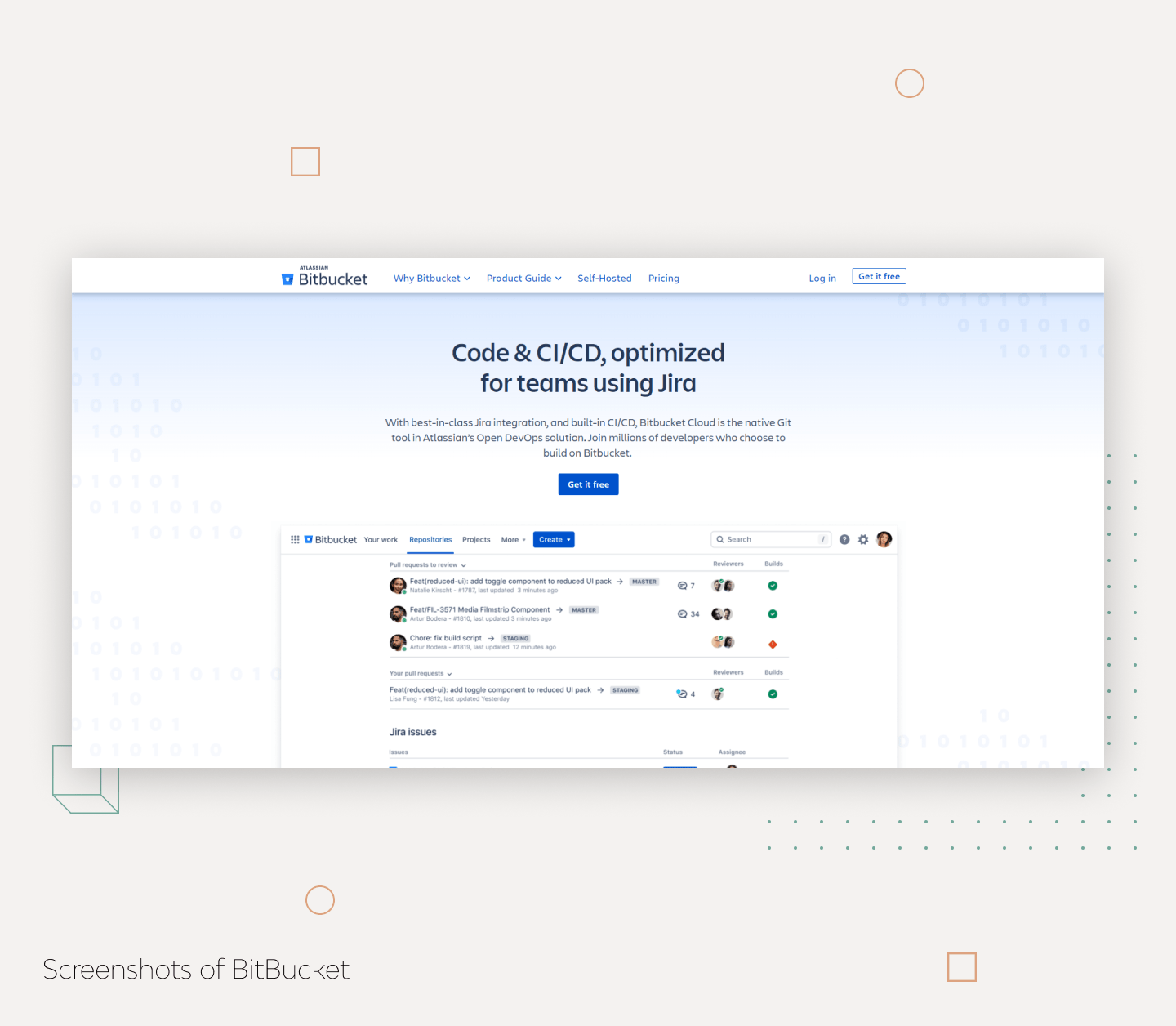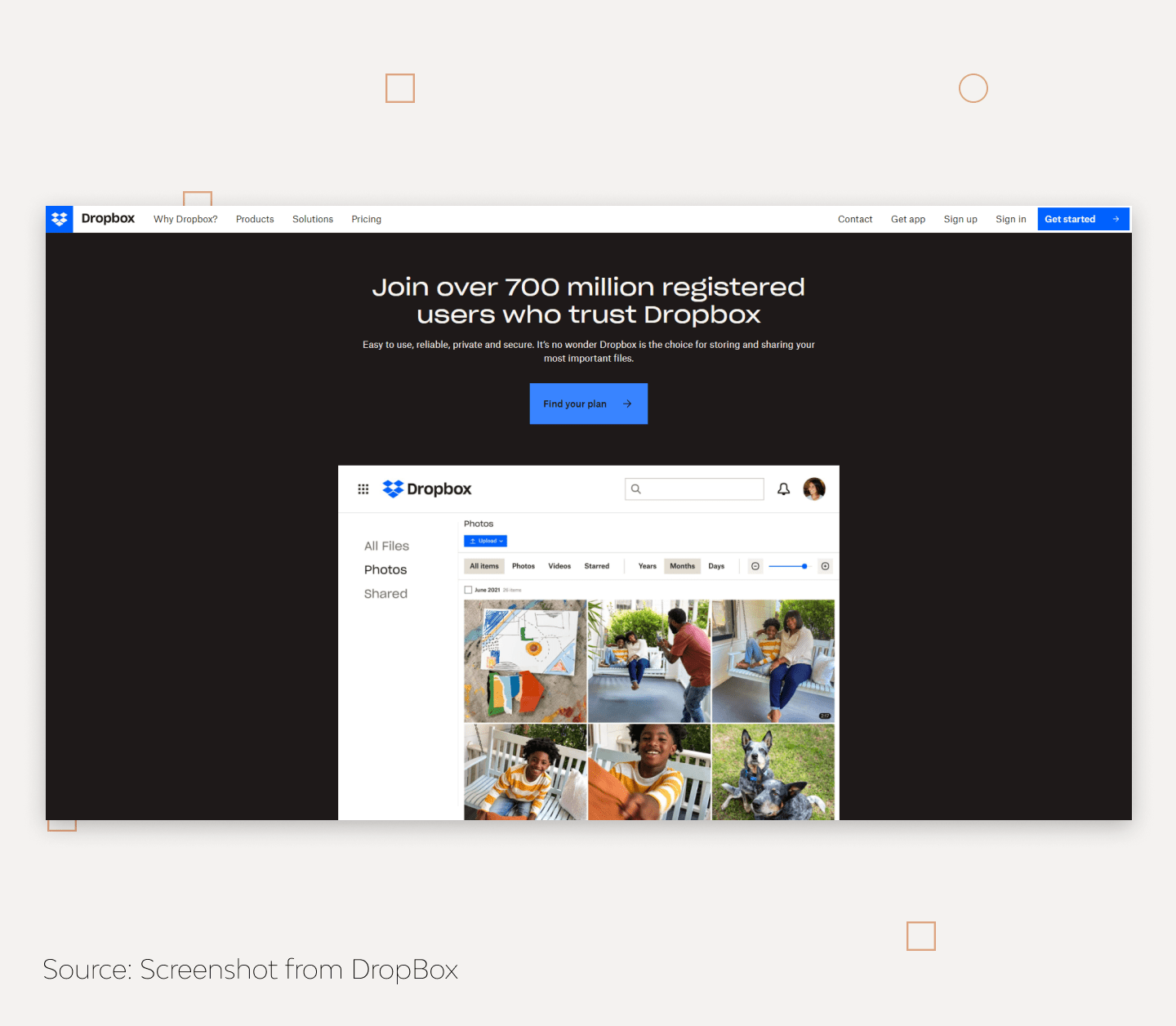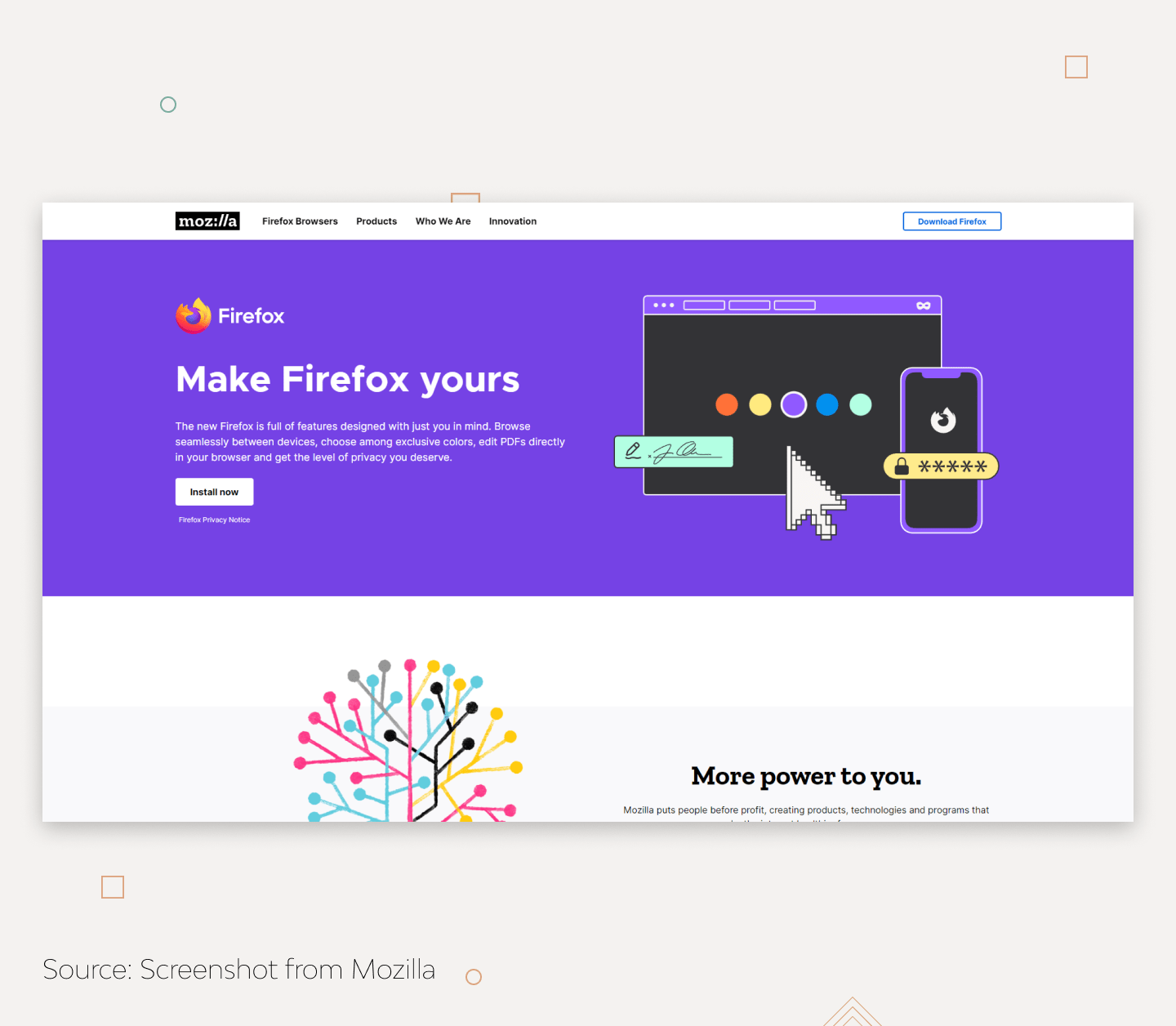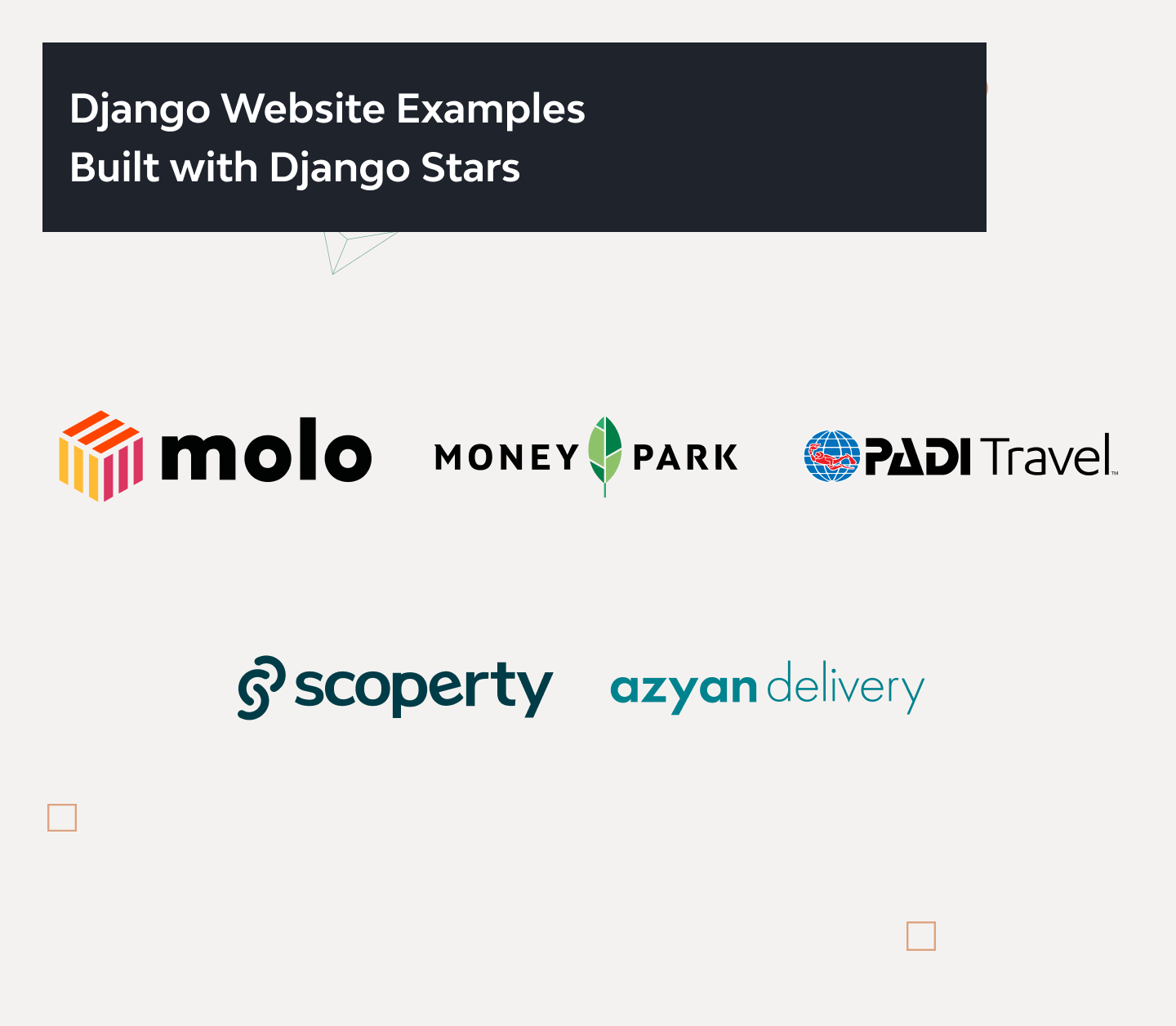10 Popular Django Websites That You Probably Know

Listen to “10 Popular Websites Built With Django” on Spreaker.
Whatever web product you’re building, the Django framework is a great choice. With 120+ projects in our portfolio, our team has long been convinced of this. As further confirmation, this article gives 10 Django website examples and understanding of what is Django used for. Without some of them, millions of people can no longer imagine their daily lives. And perhaps, these examples will provide a clue as to why Django is so popular.
Is Django the Right Choice for Web Development?
Is there a relationship between a website’s popularity and using Django to develop it? The answer shouldn’t be in a hurry. As a Python and Django development services company, we see many prospects in this framework. And our projects in fintech, travel software development, and proptech allow us to say confidently that Django’s potential is much greater than it might seem at first glance.
To begin with, Django is one of the most popular Python frameworks. It is confirmed, for instance, in the Python Developers Survey by JetBrains. Such popularity indicates that this framework provides enough technological advantages to withstand tough competition in today’s digital environment.
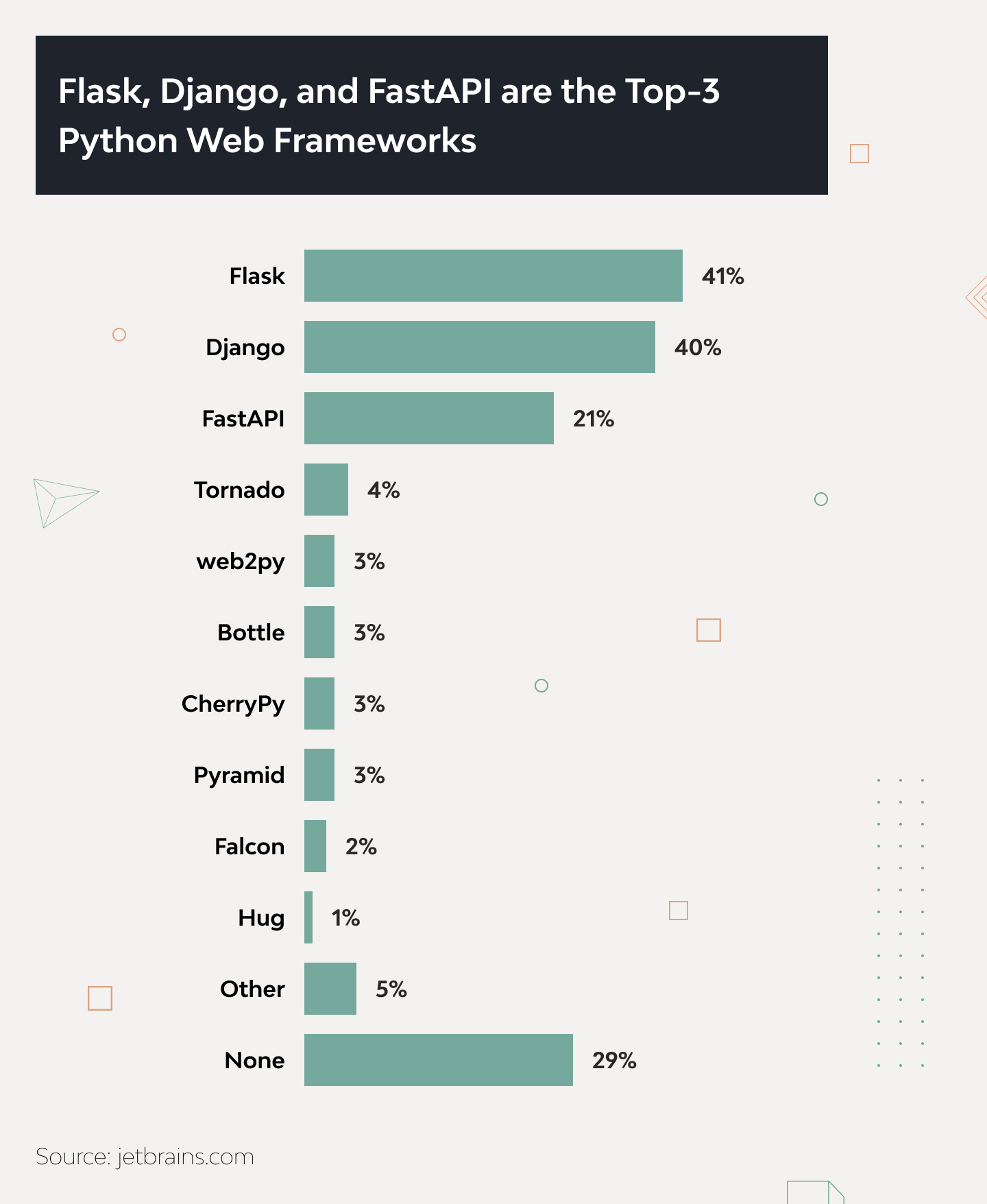
Note: When comparing frameworks, one should not forget that developers base their preferences not only on popularity, but primarily on the needs of their projects. For example, Django is suitable for multiple-page applications, while Flask is great for single-page applications.
Still, why is Django so popular? And what are its main advantages? To sort it out, it’s helpful to look at what may be created with it — namely, at popular websites that use Django, examples of which are listed below.
The Most Popular Websites Using Django
So what websites use Django? That’s why we have created the following list of websites built with Django, we will highlight the main benefits of implementing this framework. Consider the descriptions below not only as Django website examples but as inspiration for what you might apply in your own projects. Here are the best Django websites on the market:
Disqus
One of the greatest Django-based sites. It allows you to implement comments and discussion options on your website, analyze audience activity and customize ad serving.
Using the framework allowed the team not only to create the website quickly but also to keep scaling it for millions of new users. Although the Disqus tech stack now includes other frameworks as well, Django’s constantly growing community and many ready-to-implement options keep it one of the top choices.
PADI Travel
Another website built with Django is a global diving platform that offers users the widest selection of liveaboards, dive resorts, and dive centers worldwide.
Developed by DjangoStars. See case study.
The product’s technology stack, which includes Python and Django, has enabled the implementation of a high-load booking engine, a fully-custom shopping mechanism, and an advanced filtering system for the most comfortable search and booking of travel products. It makes PADI Travel the world’s largest web resource for divers, booking platform, travel guide and social network, connecting thousands of divers, hundreds of destinations, and lots of activities.
One of the most famous and fast-growing social networks, Instagram is another example of a website built with Python+Django. It’s also a great example of scalability — in 2022, it has reached 2 billion monthly active users.
Instagram processes enormous amounts of data and user interactions (likes, shares, etc.). With Django, the Instagram team can handle all of this, in addition to benefitting from ready-to-implement instruments that allow them to concentrate on UI and UX without having to think about the technology that makes them work.
Spotify
Just like iTunes, Spotify changed the way people listen to, share and purchase music. When using it, you can access your music library everywhere and on any device.
The developers chose Django for web development for two reasons:
- Fast backend.
- Machine learning options.
When building the platform with Django, they got not only a full range of Python features but also made the most of it.
YouTube
The website that clearly needs no introduction. It was first built with PHP, but rapid audience growth and the necessity to implement new features fast led the team to join the Django community. And the choice was fully justified, as audience growth hasn’t stopped (luckily for them), and new features appear very often (luckily for us).
The Washington Post
It’s interesting to know that Django was initially created to support the content application for the Lawrence Journal-World. Today, this framework is used by newspaper websites like The Washington Post, The New York Times, The Guardian, and others. Django provides them with high scalability and handling of large amounts of data in the daily interaction with their audience.
A fun fact: the site LJWorld.com, where the story of Django began, later has been completely redesigned based on WordPress.
BitBucket
Launched back in 2008, this cloud-based Git repository attracted millions of developers. With 17 million requests and 6 million repositories in a year, it is one of the most heavily loaded Django web apps.
The BitBucket team opted to use Django for several reasons. The first one is the thousands of developers in its community. The second reason, which we referred to earlier, is Django’s suite of ready-to-implement solutions. Thus, BitBucket can take what they need and spend more time thinking about how to make its product even better.
DropBox
One of the most famous cloud-based storage apps for documents, video, graphics, and so on. This popular Django-based website allows you to access your files anywhere and from any device (when you are online, of course).
Python was used to make the backend and client desktop software. It allowed the team to come up with the product relatively quickly. Using Django, the developers had an opportunity to add the user history option, synchronize an account across different devices, and, most importantly, add the file sharing option.
One of the most popular websites built on Django. Pinterest works as a social network that allows users to “pin” (bookmark) their preferences and interests while surfing the web. Also, the Django framework helps Pinterest users subscribe to other users and share their boards.
Pinterest was originally built with Django and Python, coupled with Node.js and Tornado web servers. Since then its technological stack rapidly evolved and expanded. The platform uses machine learning to analyze what its users like to pin and provide recommendations. It operates on huge amounts of data.
Mozilla
Because Mozilla is a popular browser, the number of requests it has to handle goes up to hundreds of millions per month. And his evolution is a great example of using Django to compete for users.
Given the number of queries they receive over API, it’s easy to understand why the team decided to move from PHP+CakePHP to Python+Django. Now, the Mozilla support website and all the add-ons for their browser are powered by Django.
Some Benefits of Using Django for Web Development
The creation of all the Python-based web applications listed above is made possible by the advantages that Django provides to developers. In a nutshell, they are the following:
- Focus on rapid development. Django was created to help developers quickly transform ideas and concepts into working code.
- Rich equipment. The Django distribution package includes an extensible authentication system, a content management interface, a solution for generating RSS feeds, and other tools that help to handle common web development tasks.
- Attention to security issues. The Django framework is built so to insulate developers from many security-related pitfalls.
- Built-in scalability. As the popular Django website examples above show, this framework allows the creation of high-load applications and is flexible when it comes to scaling.
- Proven versatility. Django is suitable for building a wide variety of web apps, from simplest to complex ones using AI, including fintech services, booking platforms, edtech portals, social networks, and online newspapers.
Limitations of Python Django
While the Django framework is widely acclaimed for the above advantages, the best django developers aware of the constraints of its use for building web projects. Some of them are the following:
- Django’s robustness can introduce performance overhead, especially for small-scale projects. The framework’s full-featured nature might lead to unnecessary processing and slow down response times in certain scenarios.
- For newcomers to Python web development, Django’s learning curve can be quite steep. Its extensive features and complex architecture may overwhelm beginners, requiring more time and effort to grasp.
- Django follows a monolithic architecture, meaning that all components are tightly integrated. This can be a limitation when developers want to use specific modules or features without adopting the entire framework.
- Although Django can handle moderate traffic and loads, it may face challenges with scaling for high-traffic websites. Scaling Django apps to accommodate rapid growth can demand significant optimizations.
- While convenient for standard use cases, Django’s ORM (Object-Relational Mapping) can become restrictive for complex database operations or legacy database systems.
- Django primarily focuses on backend development, which sometimes means less flexibility in frontend. While it supports frontend technologies, developers might find more flexibility and freedom with specialized frontend frameworks.
Thus, like with any technology, carefully weighing the pros and cons before committing to a Django-based technology stack helps ensure successful and efficient website development.
Django Website Examples Built with Django Stars
Python and Django development is at the center of our services as a software vendor. As a web development company, Django Stars has many years of experience applying this technology to demanding projects. Here are just a few examples:
- The UK’s first digital mortgage lender Molo
- Switzerland’s biggest mortgage broker Money Park
- The world’s #1 booking platform for scuba divers with 200k+ users PADI Travel
- An advanced German platform for in-depth property search, valuation, sale and purchase Scoperty
- The speedy and reliable food delivery service in Amman Azyan
Participating in more than 120 projects, our engineers have been learning all the ins and outs of the Django framework. And this also needs to be taken into account. After all, the fact that the tool has advantages only matters when you know how to use them.
Django-based websites: More to follow
Of course, the number of popular websites that use Django is far greater than 10. In addition to the list above, we’d suggest paying attention to the following resources:
Also, check out our case studies for a better idea of what the Django framework is capable of in the right hands.
As seen from the above, Django’s ability to reduce time and costs on product delivery can make its use efficient both in startups and large companies. This framework combines a wide range of development options with security and versatility. And it has helped many websites built with Python and Django gain popularity.
With the help of Django, you can create a website, enrich it with new features and updates, and scale it for a larger audience. And if you need an experienced tech partner, our Django development services can take your project end-to-end—contact us using the form below.
- Is Django still relevant?
- Yes, Django remains a popular and powerful framework for web development, known for its simplicity, scalability, and robust features. Django is widely used for building secure and maintainable websites and applications.
- Does Netflix use Django?
- Yes, Netflix has used Django, particularly for its internal tools and certain applications within its service architecture. Django's robust framework supports Netflix's need for handling high volumes of traffic and complex data management tasks. However, it's important to note that Netflix employs a variety of technologies and frameworks across its vast service infrastructure, and Django is just one part of this larger technological ecosystem.
- What big apps use Django?
- The Django framework powers many popular web applications. In particular, the Django app examples include Instagram, YouTube, and The Washington Post. The list of companies that use Django on their projects is constantly growing. That also includes projects developed by the Django Stars team.
- Why did famous companies choose Django?
- Famous companies use Django because it is a powerful and easy-to-use tool for web development. It tops popularity lists, which means there is a developed knowledge-sharing community available for every developer who uses Django. It's versatile and contains extras for handling common tasks while developing secure and scalable products. That's why industry leaders often use this amazing framework.
- Why is Django a good choice for startups?
- Django is a great solution for companies that aim to develop their products as quickly as possible and at an efficient cost. And in addition to speeding up the development process and the associated resource savings, a Django web app gets the advantage of scalability. This makes it possible to use Django not only in established companies but also in startups that expect to grow.
- Can Django be used for large-scale projects?
- Django is a well-thought-out framework that allows for building high-load projects. Regular updates, security, scalability, and other benefits make it a great choice not only for small projects but for anyone looking to build large-scale Django web applications.
- Can I make a website on Django with Django Stars?
- Django Stars has been developing web apps with Python and Django for over 14 years. Our development team knows how to build amazing products for successful companies using Django and knows the pitfalls to avoid. Thus, contacting us to develop your Django web application is definitely a great idea.

